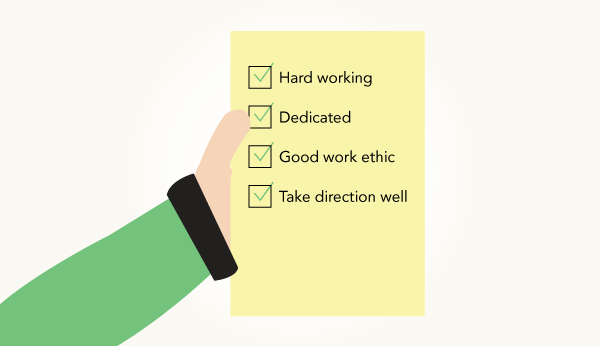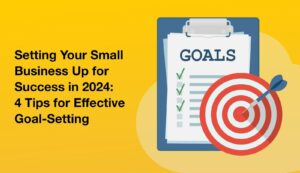So you know you need to grow your small business and hire someone. You’ve faced the fear and prepared yourself to start looking for that diamond in the rough that will fit perfectly into your small business. Maybe it’s finding someone with a unique set of skills to take you business to the next level, or maybe it’s just finding someone that’s willing to take on the challenge of helping you steer the ship into dangerous waters as you explore a new market. Whatever you needs, there’s things to look out for and be aware of so you don’t make the mistake and hire someone that won’t be a good fit.
Here at Marketcircle, we’re always getting compliments how amazing our team is and how well we work together. Props to AJ, our CEO for making excellent choices. Naturally, we thought “Who better to ask about how to go about hiring people than the man that has hired the people on our amazing team?!” So we did.
AJ’s Tips For Hiring Amazing People (And The RIGHT People) For Your Small Business.
1. Look For Proof That They’re Hard Working
Everyone and their mother puts “hard worker” on their resume. But how do you know that they actually will work hard for your small business? There’s some indicators that can prove this. For example, look for someone who has a history of growing within the company. Someone who’s been promoted in a small business or given added responsibilities has to prove that they’re able to handle it first.
“When I hire someone, I look for evidence that they’ve been able to work hard. For example, someone brought up on a working farm generally isn’t afraid of hard work. That work ethic is useful, even in software.” says AJ, our CEO.
2. Look For Longevity Within A Company
It used to be that people got a job and would stick with them for 20 or even 30 years. Those days have ended a while ago, but it’s still important to know that someone can be committed to a company. Look for someone who’s been able to stay with the same company for at least 2-3 years. If someone moves around from job to job every 6 months or a year, there’s a chance they won’t last long in yours either.
3. Look For A History In Small Business
The world of small business is very different from the corporate world. Generally, people in the corporate world are used to having more structure and routine. The small business world is more about wearing a bunch of different hats and needing to be able to adapt to different and new roles all the time. Someone who’s worked for another small business will be familiar in your world and have a better chance at adapting to the various responsibilities you’ll need them for.
“Experience in the small business world shows you’re able to work with little structure–you’re able to juggle tasks, create your own processes, and roll with the punches.” – AJ.
4. Avoid Large Gaps Between Jobs & Many Jobs In A Short Period Of Time
Moving around to different types of jobs is normal and can be great for hiring people that have diverse skills and are easily adaptable. It’s also common for people to take off and travel the world for a few months before finding their next “dream job”. But be cautious in hiring someone that has a lot of gaps between jobs and has had multiple jobs within a year (if they’re not contract positions). These are indicators that people either aren’t that motivated to look for a job or may have a difficult time working with other people and can’t stick out a job for more than a few months.
“Some people will have gaps between jobs because they’ve had a lot or positions in a short period of time and only want to show a few. This can also be a red flag. Every job has its challenges and you need to work through them. Gaps can be an indicator that they aren’t willing to work through the challenges, maybe don’t work well with others, or are the kind of person that needs to have it their way or they leave.” – AJ.
Of course there are always exceptions, but if someone has a history of being an “on again, off again” type of employee, proceed with caution.
5. Look For The Right Experience Or The Right Variety
For certain positions it’s best to hire someone that has a proven track record and experience in the role you’re looking to fill. For others, it can be better to choose someone that has experience in a variety of positions, rolls, or industries. Think about the job and what’s expected, and find someone that matches the consistency or variety needed for the job.
“When hiring someone for engineering, I look for someone that has a history or interest in building and making things. It shows they have the kind of structured thought needed for developing. When hiring someone for operational things like marketing or creative work, I look for someone that has done a lot of different types of jobs. This shows they’re versatile and can handle a bunch of things and get them done.”- AJ
6. A Specific Cover Letter Is Key
Getting a general cover letter (or no cover letter at all) is not a good sign. It normally is an indicator that this person is applying to a bunch of jobs and isn’t particularly interested in your company, or that they’re just lazy. Neither of these are good. When someone takes the time to craft a cover letter that is specific to your company and the position, it shows they’re actually interested because they took the extra time. When someone is really interested in a position and/or your company, they’re more likely to work harder and enjoy their job.
“I look for someone that indicates they’ve done research on the company. Someone that shows an interest in the product/services of the company and especially the why. For example when someone shows an interest in Mac software or really likes helping small businesses, it shows there’s an alignment between their values and ours.”- AJ.
7. The Right Personality For The Job
Finding someone that “meshes” well with you and your team has to do with work ethic, skills, as well as personality. Pay attention to what they say, how they say it, and their mannerisms during the interview. Will they jive with your team?
“You have to find someone suited for the job but also someone who will fit with the team because you don’t want to compromise the balance of your team. For example, if I’m hiring someone for sales I want someone that can strike up a conversation easily and is confident around people. But if they’re overbearing, they may not be great for the team. ” – AJ.
8. Fish Out Poor Personal Indicators Off-The-Bat
People are generally on their best behaviour for an interview, but there are still signs that show you right away this person won’t be fit for your team. Are they unable to make eye contact with you when you ask them a question? Are they late for the interview? Or have to reschedule the interview numerous times? Cue the “flakey” red flag and abort the interview! Someone who is on time, thinks deeply about the questions you ask, and answers them with “real” answers (not just what everyone thinks you want to hear); those people are going to do amazing things for your small business.
9. Go With Your Gut
Your inner intuition is a magical force, follow it as it guides you to your dream team. Sometimes people look great on paper and interview really well, but you still feel like there’s just something not quite right. Others may not have the ideal resume but for some reason you have a feeling they could really be good for your team. Trust what your gut is telling you, 99.999% of the time it’s right. After all, you probably wouldn’t have started your small business in the first place if you hadn’t followed your instinct.
“Sometimes you have to listen to your gut and take a chance. You have to just got for it.” – AJ



